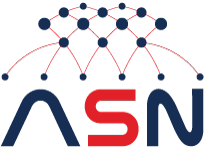WiN (Journal of the Women’s Network of the European Association of American Studies)
The issue will engage in a critical interrogation of feminist and gender theory within the context of the contemporary environmental crisis. By challenging traditional conceptualizations of “nature,” we seek to illuminate the gendered dimensions of environmental issues.
As Reyes and Chirindo posit, the Anthropocene signifies “the generalization of precarity that was once concentrated among those disempowered through perceived racial and gender differences” (2020). Therefore, a reassessment of gendered subjectivity is essential for the field of American studies to develop a nuanced understanding of gender in the Anthropocene.
The journal welcomes contributions that challenge heteronormative paradigms within American studies. We specifically encourage papers that examine heteronormative ideals and hope to point out the necessity of analyzing representations of masculine ideals shaping the narrative of the Anthropocene, which often silences the experiences of women and other marginalized groups.
Furthermore, we aim to generate critical discourse on how to approach intersectional environmental activism in a way that advances gender justice, health, economic opportunity, reproductive rights, and the dismantling of class oppression, racism, and colonialism.
Type: journal
Submission guidelines: We encourage articles that consider and examine concepts, ideas, and thoughts within American studies that discuss gender in the Anthropocene.
Specifically, but not exclusively, we invite articles on the following topics:
- Gendered experiences around climate change and environmental degradation (disproportionate impacts, vulnerabilities, and resistances)
- Indigenous women and environmental knowledge systems
- Gender, social justice, and environmental movements
- The role of gender in environmental policy and governance
- Environmental politics and forms of gendered political representation and visibility / invisibility
- Feminist political ecology and the Anthropocene
- Gender and resource extraction (e.g., mining, deforestation)
- Displacement and migration due to environmental factors
- Gender, technology, and the environment
- Gendered inequalities in the production and consumption of food and energy
- The relationship between gender and environmental disasters
- Intersectionality of gender with race, class, and other social identities in the Anthropocene
- The role of masculinity in environmental degradation
- Counterhegemonic rhetoric in subjective renderings of gender
- Gender and climate solutions (e.g., renewable energy, sustainable agriculture)
- Gender and the representation of the Anthropocene in art, literature, and media
- The role of women in environmental conservation efforts
- Gender and disaster risk reduction
- The ethics of care and the Anthropocene
- The relationship between gender and environmental education
- Gendered Anthropocenes in speculative fiction
We encourage submissions from a wide range of disciplines, including but not limited to:
- Gender studies
- Critical feminist studies
- Environmental studies
- Ecocriticism
- Literary studies
- Cultural and media studies
- Sociology
- Anthropology
- Political science
- Art history
We encourage participants of the symposium to submit expanded versions of the papers they presented and are also interested in other articles related to the theme of the issue.
You may find more information on the journal, including past issues and submission guidelines, here.
Manuscripts should be between 5,000-8,000 words long (excluding footnotes); please provide an abstract of no more than 300 words, use American spelling, and document your sources according to MLA 9.
Please submit articles, together with a bio note of approximately 150 words, by October 15th, 2025, to ea***************@gm***.com.
Submission deadline: October 15th, 2025
Institution: EAAS Women’s Network
Link: for more information about the CFPs, click here
